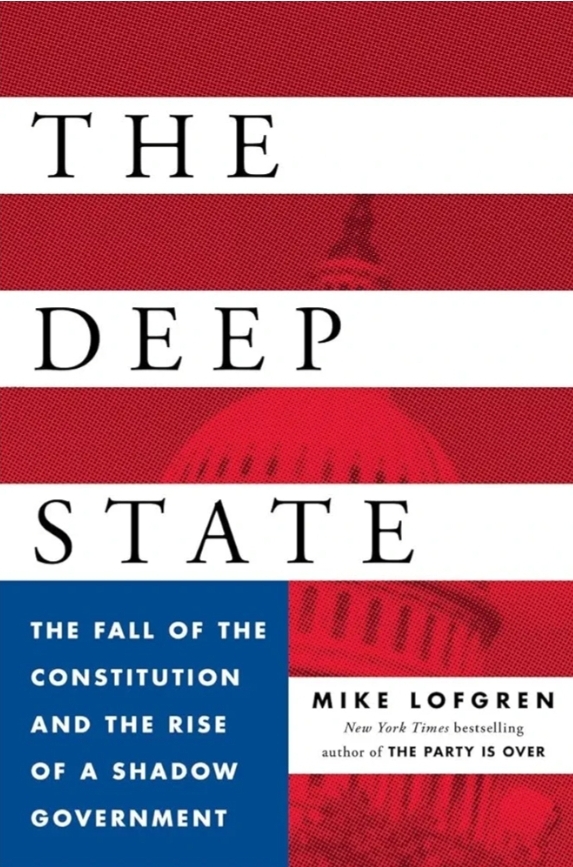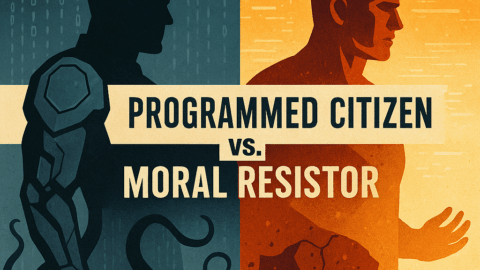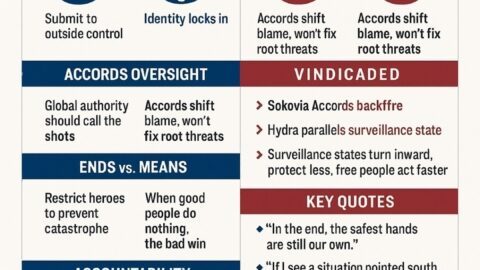“The Deep State: The Fall of the Constitution and the Rise of a Shadow Government” by Mike Lofgren provides a critical analysis of the entrenched power structures within the U.S. government that, according to Lofgren, operate independently of democratic oversight and public accountability. Lofgren, a former Congressional staffer with decades of experience, offers an insider’s perspective on how the “deep state” operates and its implications for American democracy.
Key Themes and Arguments:
- Definition and Nature of the Deep State:
- Lofgren defines the “deep state” as a network of permanent institutions and actors that exert significant influence over U.S. government policy and operations, often bypassing or undermining democratic processes. This includes elements such as the military-industrial complex, intelligence agencies, and large financial institutions.
- He argues that the deep state operates through a combination of formal and informal channels, including entrenched bureaucracies, lobbying groups, and influential elites. These entities work to maintain and expand their power, often at the expense of democratic norms and public interest.
- Historical Context and Evolution:
- Lofgren traces the origins of the deep state to the early 20th century, particularly the establishment of key institutions like the Federal Reserve, the CIA, and the military-industrial complex. He discusses how these entities have evolved over time, particularly during periods of crisis and war, to consolidate power and influence.
- He highlights how the Cold War and subsequent conflicts, such as the Vietnam War and the War on Terror, provided justifications for the expansion of the deep state and its influence over U.S. foreign and domestic policies.
- The Military-Industrial Complex:
- A central theme in Lofgren’s analysis is the role of the military-industrial complex in the deep state. He argues that defense contractors, military leaders, and politicians with ties to the defense industry have a vested interest in perpetuating conflict and increasing military spending.
- Lofgren details how this complex has been instrumental in shaping U.S. foreign policy, from the arms race during the Cold War to the ongoing military interventions in the Middle East. He contends that the complex operates to secure lucrative contracts and maintain a state of constant readiness, often regardless of the actual strategic need.
- Intelligence Agencies and Covert Operations:
- Lofgren examines the role of intelligence agencies, particularly the CIA and NSA, in the deep state. He discusses how these agencies conduct covert operations and gather intelligence that often bypasses democratic oversight and accountability.
- He argues that the activities of these agencies contribute to the perpetuation of the deep state by maintaining control over sensitive information and influencing policy decisions without public scrutiny. This includes involvement in domestic surveillance, foreign interventions, and the manipulation of political outcomes.
- Financial Sector Influence:
- The book explores the significant influence of the financial sector on the deep state. Lofgren argues that major banks and financial institutions have a profound impact on U.S. economic policy and government decisions.
- He discusses how financial elites use their resources to influence policy through lobbying, campaign contributions, and control over key financial institutions. Lofgren highlights the role of Wall Street in shaping economic policies, deregulation, and the response to financial crises.
- Impact on Democracy and Governance:
- Lofgren argues that the deep state poses a serious threat to American democracy by undermining transparency, accountability, and the rule of law. He contends that the concentration of power within the deep state erodes public trust in democratic institutions and processes.
- He provides examples of how the deep state has been involved in actions that undermine democratic norms, such as political manipulation, legal violations, and the suppression of dissent. Lofgren suggests that the deep state’s activities contribute to a growing sense of disillusionment and alienation among the public.
- Challenges and Solutions:
- The book discusses the challenges of confronting and reforming the deep state. Lofgren acknowledges that the deep state’s entrenched power and influence make it difficult to address its impact on governance and democracy.
- He advocates for greater transparency, accountability, and public engagement as essential steps to counteract the deep state’s influence. Lofgren calls for reforms to limit the power of intelligence agencies, reduce the influence of money in politics, and strengthen democratic institutions.
Conclusion:
“The Deep State: The Fall of the Constitution and the Rise of a Shadow Government” by Mike Lofgren offers a critical examination of the hidden power structures that shape American politics and governance. Lofgren’s insider perspective provides valuable insights into how the deep state operates and its implications for democracy. The book serves as a cautionary tale about the dangers of unchecked power and the need for greater transparency and accountability in government. While some readers may view Lofgren’s analysis as provocative, his work raises important questions about the nature of power in the United States and the challenges of maintaining democratic principles in the face of entrenched interests.







